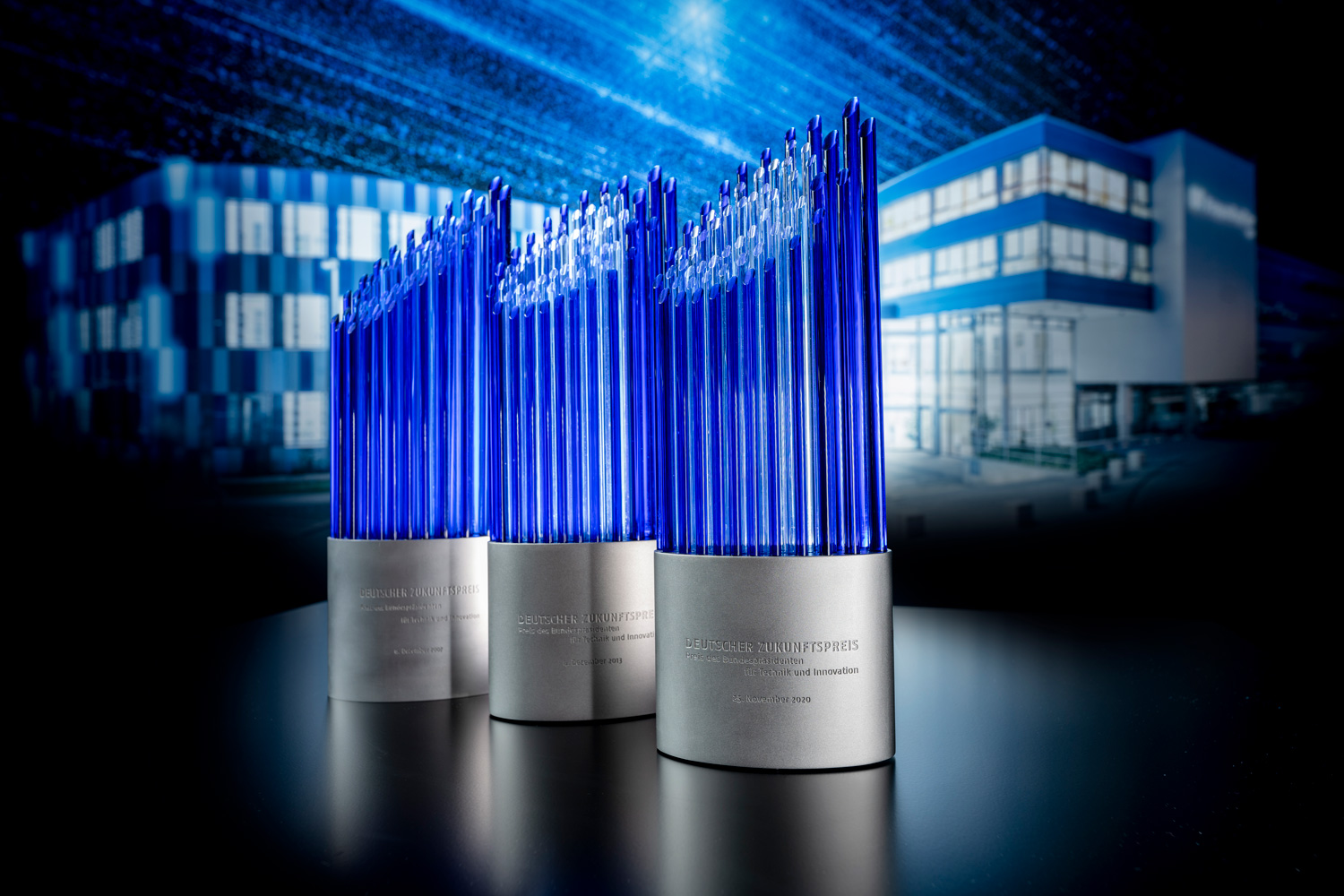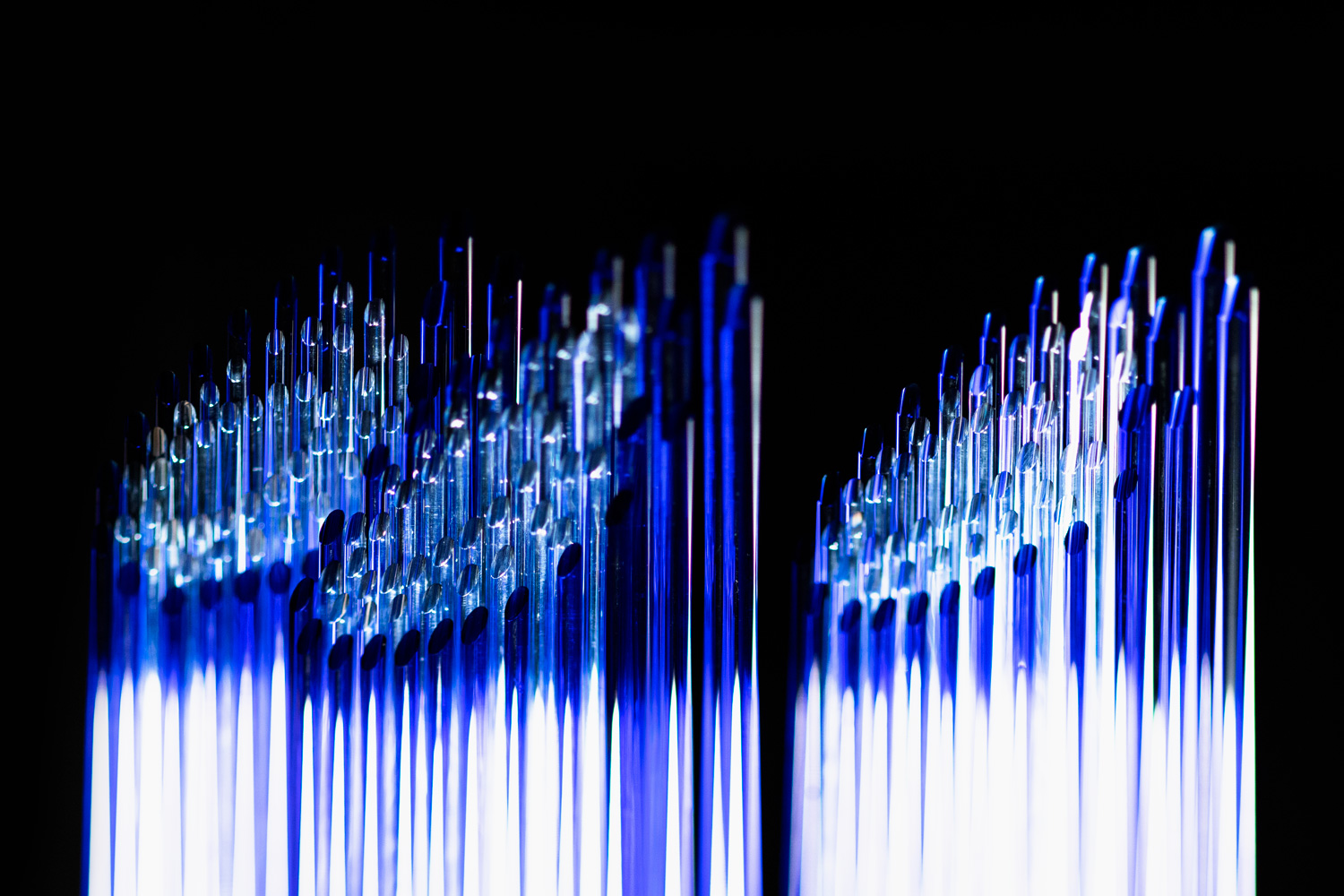Jena (Germany)
International Day of Light: Fraunhofer IOF celebrates excellent research
With the "International Day of Light" on May 16, UNESCO draws attention to research and science related to light as well as to light-based technologies that - literally - "illuminate" our lives in many areas. The Fraunhofer Institute for Applied Optics and Precision Engineering IOF in Jena, Germany contributes to this with its excellent research on a global scale. Researchers have already been awarded the "Deutsche Zukunftspreis" (German Future Prize) three times.
Let's be honest: Who of us ever thinks about why a tiny LED lamp can illuminate a room as bright as day even at night? Or why our navigation app still finds the right way when we ourselves can no longer see the forest for the trees? Whether it's tiny microchips in our smartphones or highly complex satellites in space - many of the technologies on which our ever-growing quality of life is based work for us in secret.
But it is precisely what remains invisible to most of us that researchers at Fraunhofer IOF are thinking about - and their findings not infrequently have an impact of global stature. In the past, their work has repeatedly opened doors in science, industry and society. Today, technologies developed at Fraunhofer IOF are often a self-evident part of our everyday life. Pioneering projects, which have been significantly co-developed by Fraunhofer IOF research teams, have therefore already been honored three times with the "Deutsche Zukunftspreis", the German Federal President's award for outstanding innovation technologies.
Three times "Deutsche Zukunftspreis" for researchers at Fraunhofer IOF
The first award found its way to Jena in 2007. It was awarded for the development of light-intensive high-performance LEDs. Together with the photonics company OSRAM, Dr. Andreas Bräuer and his Fraunhofer colleagues, Dr. Peter Schreiber and Dr. Peter Dannberg, succeeded in increasing the luminous efficacy of LED lamps so dramatically that they could be used as a universal light source. The LED, as it can be found in almost every household today, was thus born.
Six years later, in 2013, the coveted trophy went to the "Lichtstadt Jena" (City of Light) for a second time - this time to Prof. Dr. Stefan Nolte. Together with researchers from the Institute of Applied Physics at Friedrich Schiller University Jena and the companies BOSCH and TRUMPF, he had developed ultrashort pulse lasers (UKP) for industrial applications. Such lasers can be used to process a wide variety of materials precisely and quickly without heating them too much and thus damaging them. Since then, UKP lasers have become an indispensable part of mass production and an established economic factor.
Last year, Dr. Sergiy Yulin finally brought the "German Future Prize" to Fraunhofer IOF for a third time. In cooperation with researchers from ZEISS and TRUMPF, he was honored for the project "EUV Lithography - New Light for the Digital Age". "EUV" stands for extreme ultraviolet light. This new type of lithography process makes it possible to produce more powerful and energy-saving microchips than ever before. The new "EUV chips" thus form the basis for the further digitization of our daily lives and will enable forward-looking applications such as automated driving, 5G or artificial intelligence. In addition, EUV technology will drive technological progress that may seem almost inconceivable to us today - the conquest of space as a habitat, for example, or the pursuit of a CO²-neutral life.
Solutions with light of global format
The research work that was awarded the "German Future Prize" is representative for several other exciting projects at Fraunhofer IOF that have a far-reaching impact on quality of life, technological progress and economic prosperity.
The diverse research topics at the institute all have one thing in common: they use light. Light that is controlled so precisely that it has already made the impossible possible in the past and will continue to help overcome boundaries in the future.

